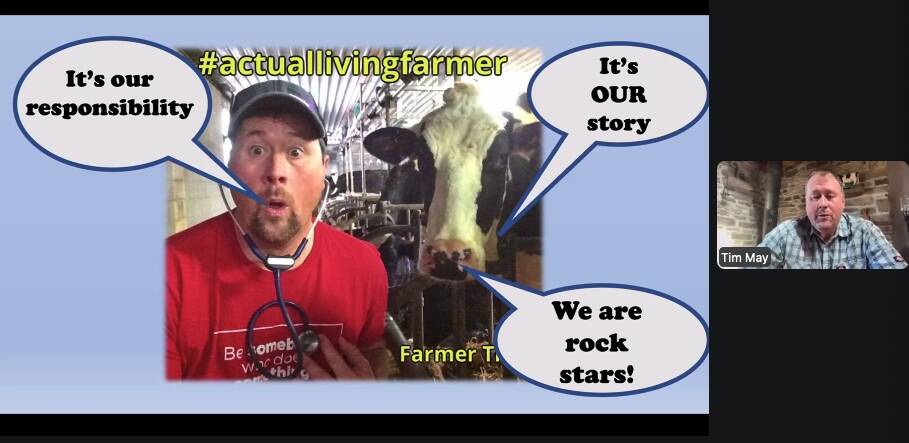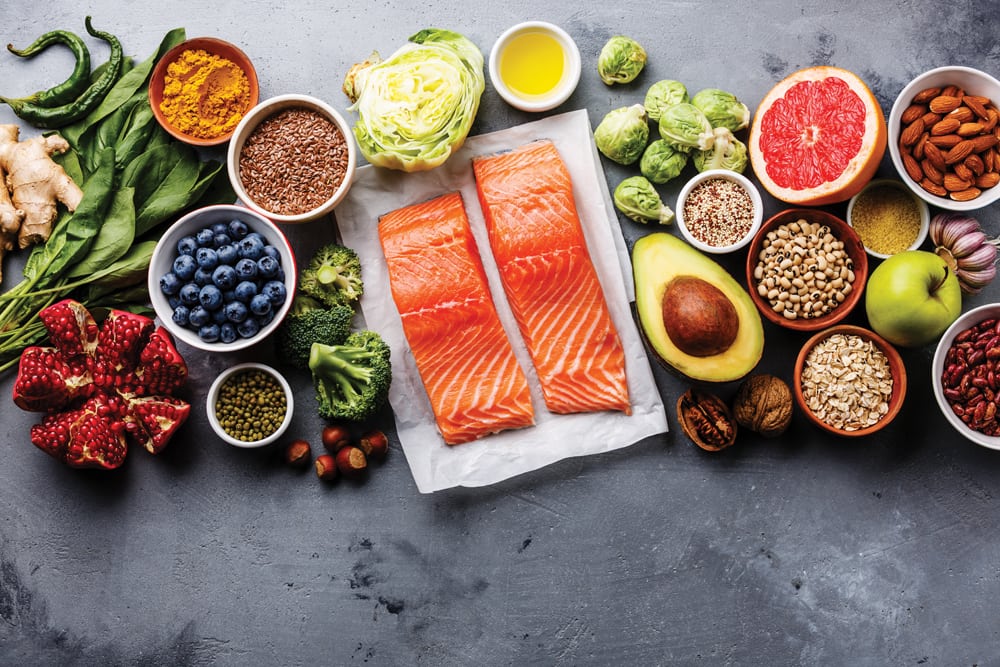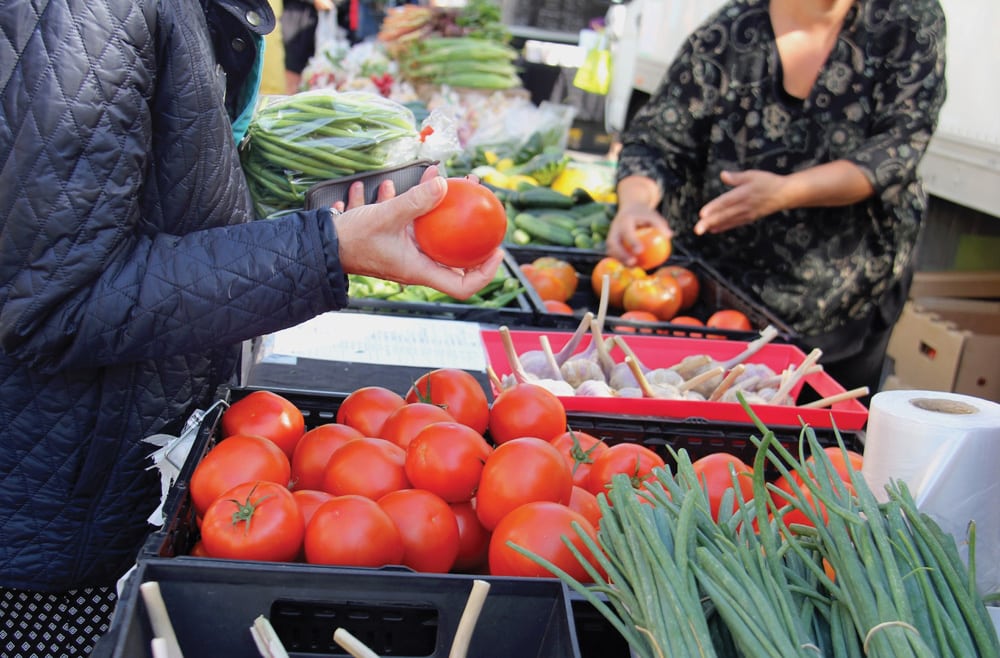Can homemade salsa be sold at a farmers’ market? What is a ‘potentially hazardous food?’ Which farmers’ markets need handwashing facilities?
Public health inspectors fielded those questions and more at a recent workshop here for local food vendors. Several participants said they haven’t known where to go for answers until now.
“There’s a lot of anxious people here,” said Lana Knor, a seller of fresh produce and canning at several Manitoba farmers’ markets, and one of about 40 who braved icy roads last month to attend.
Read Also

Sharing stories to promote Canadian farm safety
Personal stories can sometimes go farther than facts and data to promote safe practices on Canadian farms, Canadian Agricultural Safety Association conference attendees hear.
There is huge interest in selling at markets, but also plenty of confusion about what health inspectors allow, Knor said, adding that when vendors see or hear of rules being enforced in one market and not in another, they’re additionally perplexed and intimidated.
“It’s scaring people off, and I don’t want to see that happening.”
Salsa iffy
The latest furor has been over requirements for processing pickles and salsa.
Mike LeBlanc, the provincial chief public health inspector, said inspectors have been hearing a lot of questions about these products.
“I’m not sure why it developed,” he said, adding that the issue seems to boil down to the use of tomatoes in some of the products for sale. The problem with tomatoes is that they’re a lower-acid food, putting products made with them in the category of a ‘potentially hazardous food,’ he said.
“We’re really iffy when it comes to the whole salsa thing,” he said, adding that inspectors will probably advise people to take salsas to the Food Development Centre in Portage la Prairie to have the recipe standardized and all food safety requirements met.
The chief inspector also tried to dispel some of the myths around what’s being barred from farmers’ markets.
You can certainly sell “slightlier risky foods,” he said. “But you must get your own permit and make them in a certified kitchen and label them properly.”
That is a permit in addition to the farmers’ market’s own operational permit, he added. Certified kitchens are provincially inspected and often can be found in local churches or halls.
Certified kitchens
Others said this requirement comes with its own set of challenges, however. Several workshop participants commented that it requires extra driving, plus these kitchens aren’t necessarily equipped with the necessary storage and freezing units.
The farmers’ market guidelines, updated in 2009, are available online at a number of locations including Manitoba Public Health and Manitoba Agriculture, Food and Rural Development’s websites. The shared inspections between the two departments also puzzled some workshop attendees. Permits for selling food products are issued either from Public Health or MAFRD depending on the product and where the vendor plans to sell it.
“If it’s one of the potentially hazardous foods you will need a permit from either us or MAFRD,” LeBlanc said.
“When you come up with a business plan and explain to us what you want to do, we’ll explain if it’s MAFRD or Health (issuing the permit),” he said. Although workshop participants described the meeting as helpful, some still left puzzled.
Perplexing
Patrice Drouin, a honey producer at St. Laurent said he’d like to start producing and selling more value-added honey products. Some of his questions were answered at the Teulon workshop, but he said the regulations remain pretty perplexing. It further complicates things with both Manitoba Health and MAFRD involved in the permitting process.
“We need regulation, of course, but the diffusion of that information to the people who will use it is poor, in my opinion,” Drouin said.
The market guidelines are found online on websites of Manitoba Public Health, MAFRD and the Farmers’ Markets Association of Manitoba.
Others speaking at the workshop said a proactive approach directly involving public health inspectors is what gets local food sellers off to a good start.
Megan McKenzie, president of the new Rural Roots non-profit local food co-op store in Boissevain said they invited their health inspector in to explain the rules several months before they even opened their doors. That meeting helped dispel a lot of the confusion, she said.
People wanted to know things like, ‘Where do I get a rabbit butchered?’ or, ‘Can I grow sprouts for sale?’ she said.
“We worked very closely with the health inspector and it got us off on the right foot,” she said. “We didn’t know the answers to those questions either, and there were debates about who covered what and what the rules were.”
Rural Roots has since seen a dozen new food products successfully launched from their store, she added.
Good start
LeBlanc said later in an interview that inspectors are working hard to be consistent about enforcing the food safety requirements. What can confuse people is the difference between markets.
A market where no food is being prepared on site, and non-hazardous foods are being sold won’t require handwashing facilities. Rural markets tend to be “more traditional” that way and don’t require the handwashing sites, he said. Handwashing facilities are required where food samples are being offered, or foods being prepared on site.
“If you’re cooking sausages or a highly prepared meal you do require a different level of handwashing,” LeBlanc said.
LeBlanc said public health inspectors are trying to make sure they’re “all on the same page.”
“We just need to do a bit more education among our staff about what is considered acceptable at a farmers’ market. Some staff are not as comfortable with food being prepared on site. We’ve done some internal talking with our staff,” he said.


















